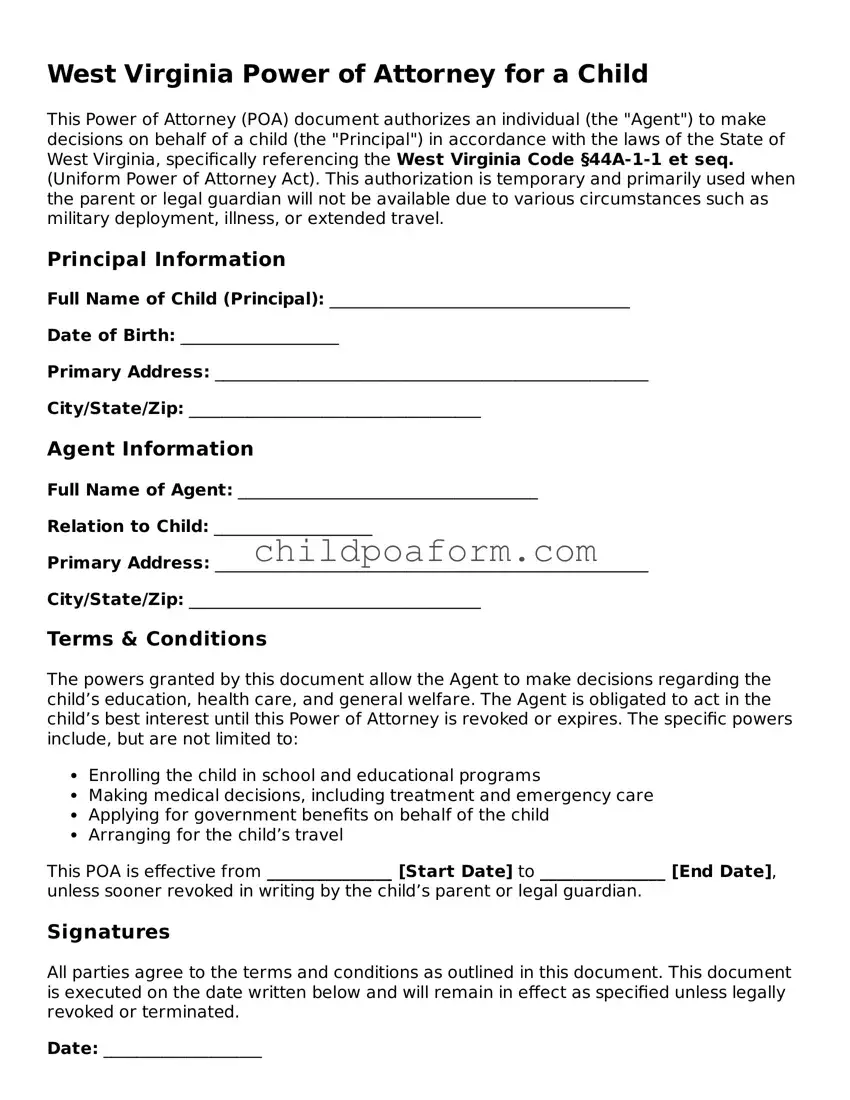Instructions on Utilizing West Virginia Power of Attorney for a Child
When you need to assign someone else the responsibility of making decisions for your child in West Virginia, filling out the Power of Attorney (POA) for a Child form is a necessary step. This form is quite straightforward, but it's essential to complete it carefully to ensure that all the information is accurate and reflects your wishes. Here’s a step-by-step guide to help you through the process, ensuring that the POA for your child is correctly filled out and legally binding.
- Start by downloading the latest version of the West Virginia Power of Attorney for a Child form from a reliable source. Make sure the form is up to date to comply with current laws.
- Enter the full legal names of the parent(s) or current legal guardian(s) granting the power in the designated space at the top of the form.
- Write the full legal name of the child (the "principal") in the space provided. Include any middle names to avoid any potential confusion or legal issues down the line.
- Fill in the full legal name and all contact information of the individual being granted the power of attorney, known as the agent. This should include their address, phone number, and relationship to the child.
- Specify the effective date when the power of attorney will begin and, if applicable, the termination date. If no termination date is provided, note the circumstances under which the power will end.
- Detail the specific powers being granted to the agent. This section is critical; be as detailed as possible about what decisions the agent can make on behalf of the child, including medical, educational, and financial decisions.
- Both the parent(s) or legal guardian(s) and the appointed agent should read the document thoroughly to ensure all the provided information is correct and that both parties understand the extent of the powers being granted.
- The parent(s) or legal guardian(s) must sign and date the form in front of a notary public. The agent’s signature is often required as well, either in the presence of a notary or witnesses, depending on state requirements.
- Once completed, keep a copy of the form for your records. It’s also a good idea to give a copy to the child’s agent and any other involved parties, such as a healthcare provider or school official.
- Lastly, remember that the Power of Attorney for a Child form can be revoked at any time by the parent(s) or guardian(s) who granted it, as long as the revocation is done in writing and follows West Virginia’s legal procedures. Make sure to notify the agent and any institutions or individuals who were acting under the original POA if the power is revoked.
Following these steps will help you ensure that the Power of Attorney for your Child in West Virginia is filled out correctly and legally sound. Always consult with a legal professional if you have questions or need guidance specific to your situation. This way, you can have peace of mind knowing that your child’s well-being is securely and responsibly managed.
